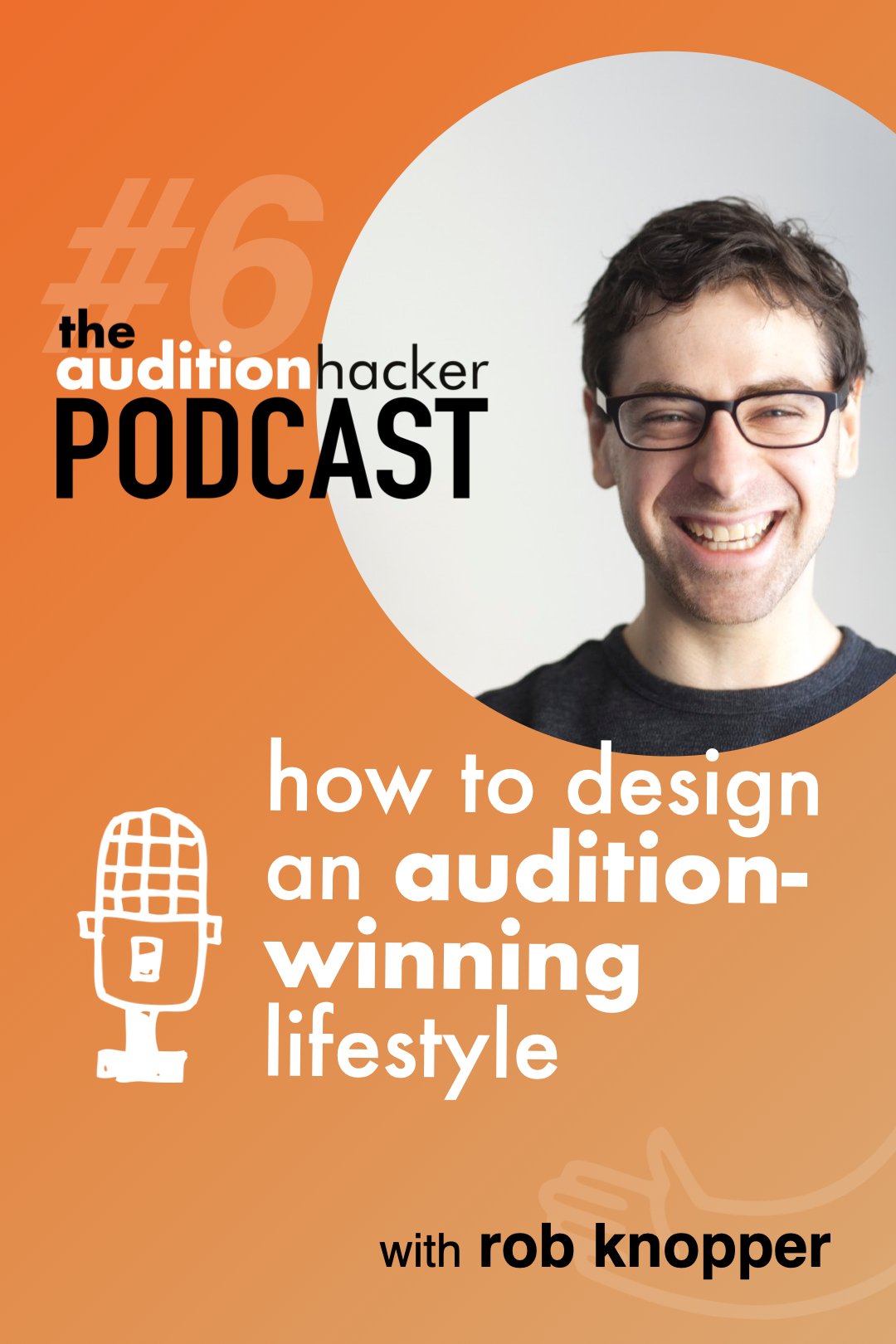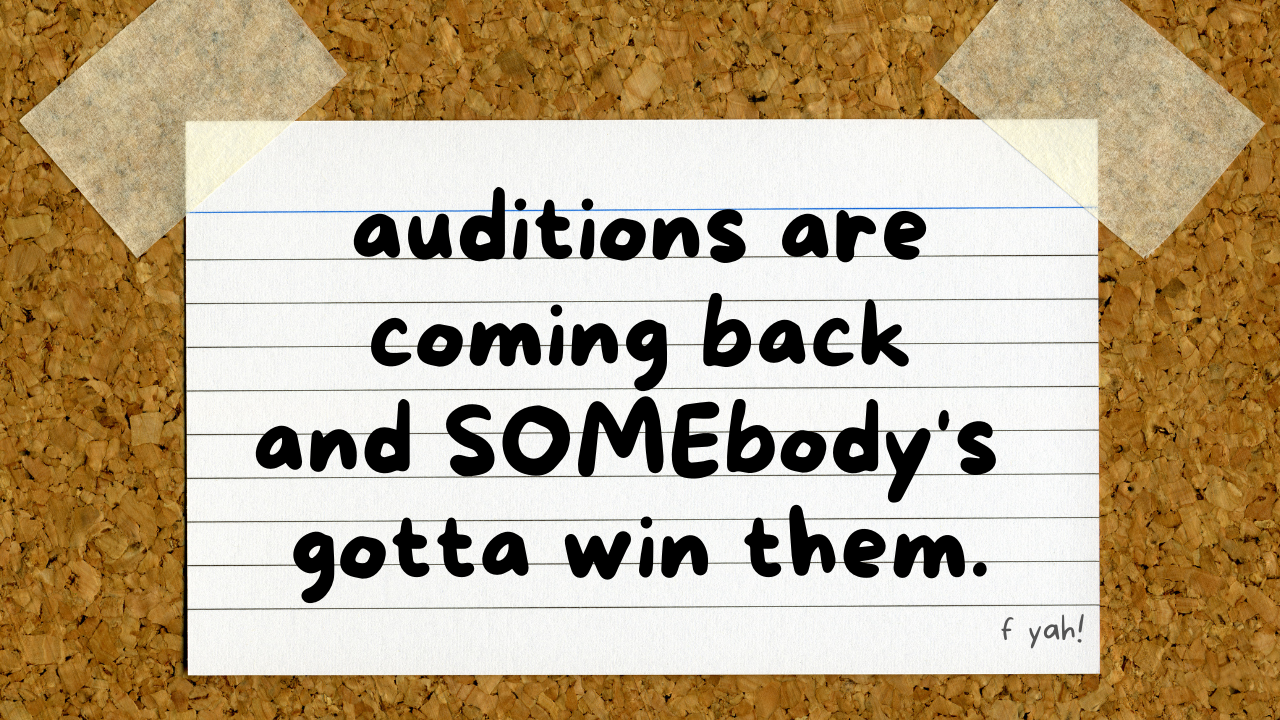last week i wrote about how to choose a college for rising high school seniors. this week, i wanted to address a decision that a lot of rising college seniors are contemplating.
today’s question is from matt moore. actually, matt asked me a variation of this question. his was, “Does getting a masters degree increase your chances of winning a job or is just a coincidence that most people have them?"
hey matt: i hear this one a lot. it’s a great question, because the traditional order of events in a musician’s rise to winning an orchestra job is this:
1. be brought into this world as a baby
2. immediately begin practicing for many, many years
3. go to college
4. win a job
...right?
a college audition checklist.
a downloadable to-do list for each period of time between now and your college audition.
to help you with your college decision process as much as possible, i created this checklist. it includes a timeline and to-do list for each time period of your college audition journey. you can download this, print it out, and keep it by your computer throughout your college audition journey. that way, you won't miss anything along the way.
well, how many of those steps are actually necessary?
audition committees evaluate where you are, not how you got there.
let’s break it down, starting with the final step: how to win a job.
simply stated, all you have to do to win a job is to pass an audition. and the beauty of american orchestral auditions is the screen. at the moment the committee is listening you, they don’t know what your background is… they’re not allowed to know.
when that screen is up, they can’t see your gender, your ethnicity, how many days you practiced over christmas break, or what schools you went to.
thank god for that screen.
and then, once the screen comes down in the finals, you've achieved something new for your résumé that eclipses any master's degree: you made it to finals in an audition.
obviously, step #1 is recommended. and since orchestra auditions are basically a bunch of obsessive musicians sitting around picking apart musical performances, you have to play at a super high level with awesome rhythm, musicality, character, dynamics, tone, blah blah blah. to learn those things you definitely have to have an extended learning-focused phase of your life. but let’s break down step #3: go to college, and how that helps you with step #4, winning a job.
college is just an enhanced step #2.
when i was in high school, i had a conversation with one of my percussion teachers in which i thanked him immensely for all the incredible wisdom and direction he was providing me. and i still think that: i’m certain that without my amazing high school private teachers i wouldn’t be where i am today. but there was one thing he told me that i can’t forget, which was, “you’re on a path. i’m just trying not to get in your way.”
so basically, (and tell me if you interpret it the same way i do,) it’s my job to push forward, practice, soak in information, and it’s the teacher’s job to expose me to the right types of things along the way. the only thing the teacher shouldn’t do is stop me in my tracks, redirect me, and somehow prevent me from doing the growing that i need to do.
here's an analogy (and thanks to will james for this one): you're the motor of the ship, and your teacher is the rudder. if your motor isn't running, it doesn't matter which way your teacher or your education is guiding you... you're not going anywhere.
so a great college can guide you in the right direction, but you’re the driving force behind your education in that you’re the one thinking, practicing, studying, and growing. no one can do that for you. but if college can offer the right influences, information, and community, then it’s possible to really thrive and have a steep learning curve.
so what exactly does a college experience provide?
first and foremost: lessons. and a place to practice. and other students to compete with, bounce ideas off of, and hang out with. it also provides an orchestra to play with that's full of excellent musicians. you need those other students around you so that you can talk shop. and you get to hear fine music all day which develops your ears.
during undergrad, all of those things developed me as a person and a musician. i was forced into situations, over and over, where i presented musical performances and was offered advice by professional musicians. that helped shape me to play and to think in a way that led to my winning a job.
i went to college… i went to one of the most awesome colleges ever: juilliard. i studied with amazing teachers from the new york philharmonic and the met orchestra. and i got to hang out with percussionists who are now in the boston symphony, san francisco symphony, and more.
but... i don’t have a master’s degree
my report card from junior year at juilliard. (all you can do is laugh...)
i barely even have an undergrad degree. i got so many bad grades in college that juilliard once sent a letter to my teacher ratting me out for getting a D in music history. which i think it prettttttty hilarious.
not that music history isn’t important: it is. understanding music history adds to my general knowledge of different eras of music and why they sound like they do. i might play a mozart piece differently because i know the historical context that it comes from. mozart was one of the first composers that wrote for percussion. his parts are super simple, because in a lot of cases that was the first time that people were ever hearing percussion in classical music.
but did i need to take official juilliard music history classes to be able to win auditions? not necessarily. i can read books, and i can watch documentaries and movies. if i’m devoted to winning an orchestra job, then i’m going to do whatever it takes to win. and so somewhere along the way, i have to learn who mozart was and why he wrote the way he did so that i can effectively figure out how to interpret his music.
at the time, i made the executive decision to prioritize my lessons and practicing over studying for music history class. that’s because i was the executive director of my own education. and since i had hired juilliard to provide an educational service, it was my own prerogative to choose how i spent my time.
here are some reasons to get a master's degree:
1. college is an all-in-one solution.
without school, you’d have to put all of those things together: lessons, practice, orchestra experience, music history, music theory, ear training, etc., which you can totally do. you can call a teacher in your area, and schedules lessons on your own. you might pay around $3500 for a school year’s worth of lessons. you can practice in your own house for free. you can sign up for a local youth orchestra or join a community orchestra, probably for free, and they might even pay you. you can get some music history books, music theory books, and you can probably find an online ear training course. in fact, berklee online has 21 music theory, harmony, and ear training courses that you can take on your own. those cost around $1200 each.
you can even cull together a group of likeminded musicians to talk shop, play for each other, and provide the student community that a school normally would. all of this would be so much cheaper than doing real college, if that’s what you’re thinking. music schools have already done this legwork, though, so it’s usually much easier to just go. and you might not know how to find the best teachers. but if you don’t need all those things right now to win a job, then you might not want to be bogged down with them.
2. it does indeed help people
you're gonna learn stuff. even if you have to sit through some unnecessary classes, you can't avoid learning stuff, and you're almost definitely going to be a better person because of it.
3. some people need their curriculum designed for them
if you're not sure what you need to do during your master's degree, you might consider signing up.
4. it might be easier to find funding for college than an ambiguous collection of lessons and practicing.
if you're relying on your parents or if you're getting college loans to fund your life during this period, it might be a better 'sell' to have a master's degree on the horizon.
5. if you studyied something completely different in undergrad, like basket weaving or banana agriculture.
this is a no brainer - if you got your undergrad in something non-musical and you're transitioning back to music, you might consider getting your master's in music performance.
most importantly, decide what you need.
after i was done with undergrad, i was SO DONE. i didn’t want to take any more classes or waste time on anything that wasn't going to directly lead me to winning a job and ‘starting my life.’ so i looked around at schools that met three requirements: (1.) great teacher, (2.) good practice facilities, and (3.) a LOT of time to practice.
i thought about what i needed and i evaluated which schools would provide that service to me. in the end, there was even a 6 month period where i practiced in my parents’ basement in rural michigan, and it was one of the most valuable periods of learning that i’ve ever had. i never got a master’s degree, but i did play in the new world symphony for a year. that was a great alternative, and was even better for what i needed at the time.
so now i’ll put the question to you: what’s next? what else do you need to learn between today and the day you win an audition? if a master’s degree will get you there, then by all means: do it. if something else will get you there, don’t get distracted by the allure or the tradition of getting a master’s degree. the degree isn't going to earn you an orchestra job; being a fully-actualized audition-ready musician will.
cool. so if you are going to do a college search, do it right.
here's a downloadable to-do list for each period of time between now and your college audition.













in 2019, a cellist named maria reached out to me about her audition struggles. on paper, she was the “worst audition candidate ever” (her words). she had 2 small children, a full-time teaching job, and hadn’t taken an audition in 4 years.